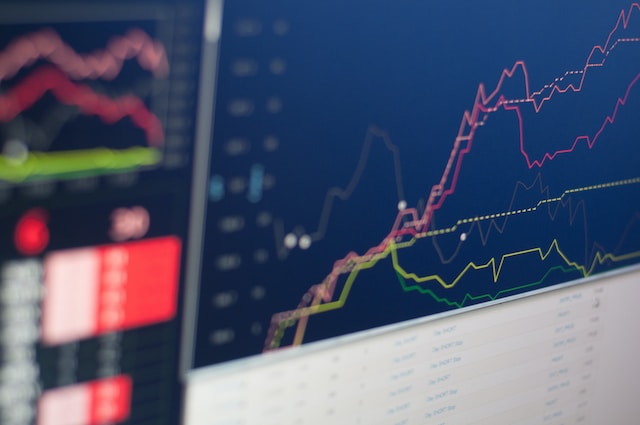
Day Trading Courses: Where Beginners Grow into Experts
Perhaps you know nothing more about bulls and bears except that they’re mammals, and your eyes gloss over a bit when the news reporting covers Wall Street. However, if you’ve heard of day trading, you know it takes work to be successful, and you’re all in to learn more. So now what?
Whether you know a little or a lot about how the stock market works, anyone who wants to start day trading can be successful with some education and support. The good news is that you don’t need to go back to school and get another degree.
Simply by taking a substantive day trading course that includes a lot of support for your new venture, you can launch your exploration into the world of day trading with confidence. To know if day trading is right for you, this post helps you understand what day trading is—complete with some tips for beginners—so that you can make an informed decision.

What Is Day Trading?
Day trading is a style of trading in financial markets where you buy and sell financial assets, such as stocks, currencies (forex), commodities, or cryptocurrencies, within the same trading day. The primary goal of day traders is to profit from short-term price fluctuations in these assets, taking advantage of both rising (long) and falling (short) market movements.
Key characteristics of day trading include:
- Short timeframes: Day traders focus on very short timeframes, often trading within minutes or hours. They typically do not hold positions overnight, as this can expose them to overnight market risks.
- Frequent trades: Day traders execute a large number of trades throughout the day, seeking to capitalize on small price movements. This can result in a high level of activity and frequent order placements.
- Technical analysis: Day traders often rely on technical analysis, studying price charts, patterns, indicators, and trading volume to make trading decisions. They use these tools to identify potential entry and exit points.
- Leverage: Some day traders use leverage, which allows them to control a larger position size than their trading capital. While leverage can amplify profits, it also increases the potential for significant losses.
- Risk management: Effective risk management is crucial in day trading. Traders typically use stop-loss orders to limit potential losses and set profit targets to lock in gains.
- Margin accounts: Day traders often use margin accounts provided by brokers, allowing them to borrow capital to trade larger positions. Margin accounts can amplify both gains and losses.
- High-speed trading platforms: Day traders require fast and reliable trading platforms with real-time data feeds and order execution capabilities to react quickly to market changes.
- Discipline: Successful day traders maintain strict discipline and adhere to their trading plans and strategies. They avoid impulsive decisions driven by emotions.
- Capital requirement: Day trading requires a sufficient amount of trading capital to withstand potential losses and cover margin requirements. The specific capital needed varies based on the trader’s risk tolerance and trading strategy.
- Constant monitoring: Day traders closely monitor market movements throughout the trading day, looking for opportunities and reacting to price changes in real time.
Day trading can be highly risky, which is why a day trading course can help you learn how to balance all the aspects of trading and make informed decisions. While some traders achieve success and profitability, many others experience losses. Additionally, seeking advice and support from financial professionals can be beneficial for those considering day trading.

Day Trading vs. Trading Stocks
Day trading and trading stocks are related activities, but they differ significantly in terms of trading strategies, timeframes, and goals. Here are some key differences between day trading and trading stocks:
- Timeframe:
- Day trading: Day traders buy and sell financial assets within the same trading day. They do not hold positions overnight and aim to profit from short-term price movements, often on a minute-by-minute or hourly basis.
- Trading stocks: Trading stocks encompasses a broader range of strategies, including short-term trading, swing trading (holding positions for days to weeks), and long-term investing (holding positions for months to years).
- Trading frequency:
- Day trading: Day traders execute a high volume of trades within a single trading day, seeking to capitalize on intraday price fluctuations. They may execute dozens or even hundreds of trades daily.
- Trading stocks: Traders and investors who trade stocks with longer time horizons do not have the same frequency of trades. They may buy and sell stocks less frequently, focusing on the bigger picture.
- Strategies:
- Day trading: Day traders often rely on technical analysis, studying short-term price charts and patterns. They look for opportunities based on technical indicators and real-time market data.
- Trading stocks: Traders and investors who hold positions for longer periods may employ various strategies, including fundamental analysis (evaluating a company’s financial health and prospects) and technical analysis but with a broader perspective.
- Risk management:
- Day trading: Effective risk management is essential for day traders. They typically use stop-loss orders to limit potential losses and adhere to strict risk-reward ratios.
- Trading stocks: Traders and investors with longer time horizons may have more extended stop-loss levels and different risk management approaches, as they aim to withstand market fluctuations over longer periods.
- Psychological stress:
- Day trading: Day trading can be emotionally demanding due to its rapid pace and constant decision-making. Traders must manage emotions such as fear and greed while reacting to quick market movements.
- Trading stocks: Traders and investors with longer holding periods may experience less day-to-day stress and emotional volatility.
- Capital requirement:
- Day trading: Day traders typically require a larger amount of trading capital to meet margin requirements and withstand intraday price swings. The specific capital needed depends on the trader’s strategy and risk tolerance.
- Trading stocks: Depending on the trading strategy and goals, traders and investors may have varying capital requirements. Long-term investors may have lower capital needs but a more extended time horizon.
- Goals:
- Day trading: The primary goal of day trading is to profit from short-term price movements. Day traders are less concerned with a company’s long-term fundamentals and more focused on technical patterns and market sentiment.
- Trading stocks: Traders and investors who trade stocks may have diverse goals, including capital appreciation, dividend income, and long-term wealth accumulation.
Both day trading and trading stocks come with their own set of advantages, risks, and challenges. If you’re looking for the best day trading course, Spartan Trading has you covered. Not only will you cover the necessary material to help you make informed decisions, but you’ll also receive a community of support and guidance even after the course is completed.



